Enjoy the postcard perfect beaches, the resorts, the silver service! But don’t miss out on the Zanzibar Island ‘Stone Town’ and you won’t want to miss experiencing both sides of this unique African island culture.
Featured Image via: Klindi Hotel | North Zanzibar
All around Zanzibar Island there is wonder, postcard perfect images that ignite the imagination and then lull visitors into hibernation.
Indian Ocean waves gently lap against traditional wooden sailing boats, the evocative dhows swaying in the turquoise shallows (dhows: a lateen-rigged ship with one or two masts, built without nails and can withstand the monsoons of the Indian Ocean).
White sand squeaks beneath footsteps, a soporific loop of beaches surrounding this East African island. More colors circle the shore; palm tree plantations, barefoot men carrying mountains of oranges, and tourists enjoying the sites and sounds. Just a 90 minute ferry ride from mainland Tanzania, Zanzibar Island entices visitors with its visuals of beach paradise.
Zanzibar Island is a land of extremes
Yet East Africa is a land of extremes, perhaps epitomized by Zanzibar Island. Don’t think that traveling to this island you will find luxurious resorts catering to tourists throughout. The decaying ferry port whiffs of rotting fish and rusted metal stand in stark contrast to the touristy parts of the island. The ferry schedule is complicated, and boisterous touts sell tickets for the boat that earns them most commission, not the boat that’s departing next.
Customs officials invade bags as if passengers are quintessential gangsters leaving a rural Colombian airstrip. But head ten minutes down the road and everything changes. Opulent hotels enclose private beaches and offer over the top 5* service.
Luxurious resorts line the sand.
Guests enjoy themselves on chandeliers, swimming pools, fried lobster, and silver service. Inland, away from the tourist eye, many locals live in small wooden shacks without running water. Zanzibar is 50 miles across and nowhere is the wealth as unevenly distributed.
Image via: SIME/4corners Images
Is Zanzibar Island one for your island travels bucket list?
I don’t think we should make visiting Zanzibar Island an ethical decision. What gain is there in jumping on a high horse because the island isn’t fair yet? For over 1000 years, Zanzibar Island has been the market place where Africa’s wealth has been plundered. Leopard skins, spices, ivory, slaves; it was all shipped to Zanzibar Island and then sold to Arabs, Chinese, Indians, and Europeans.
When slavery was made illegal, Zanzibar’s gloomy caves unfortunately continued to be packed with people whose lives and bodies had been stolen. Visitors now come for a new experience thankfully. They come for a combination of sandy vibes and unhurried Indian Ocean atmosphere. They come for what Zanzibar Island has always had: immaculate beautiful beaches. All over the oceans there are idyllic strips of sand taken over by chain resorts and international conglomerates!
So how is Zanzibar different? Read on…
Image via: blog.edreams.com
Traveling back in time on the Island of Zanzibar
Along the narrow streets of the Stone Town something is brewing. A moustachioed man sips his creation before shouting out to the street: “Masala chai, masala chai…!” He’s selling boiling tea, an infusion of flavors that has its roots in Africa, India, and the Middle-east. Each alleyway in this labyrinthine old town is barely wide enough for a passing donkey.
They meander haphazardly, taking people on a vivid journey past crumbling Portuguese Christian cathedrals, grand Persian baths, vibrant Hindu temples, and captivating designed mosques. Occasionally they spit people out on a small square, where tea sellers stand beside goat fryers, and old men barbecue octopus. Locals gather round to watch a game of backgammon.
A public chalkboard displays local football results. The resonant call to prayer drifts across the rooftops.
Image via: en.wikipedia.org
Enjoy the beaches…but don’t miss the Zanzibar Island ‘Stone Town’
“Masala” means mix, and this fragrant tea represents why Zanzibar is different. In the Stone Town there isn’t the same disparity between rich and poor. For ten centuries visitors have settled here, bringing diminutive pieces of their homeland and slowly changing the local culture. Rastas walk down the alleyways with Islamic mullahs. Tourists drink with locals in energetic cafes. An Indian curry breakfast is followed by a seafood dinner. Zanzibar has the postcard perfect beaches. But its real beauty is found in the Stone Town. In its captivating “masala” that offers much more than sun, sea, and sand.
Photo image via: sleepout.com

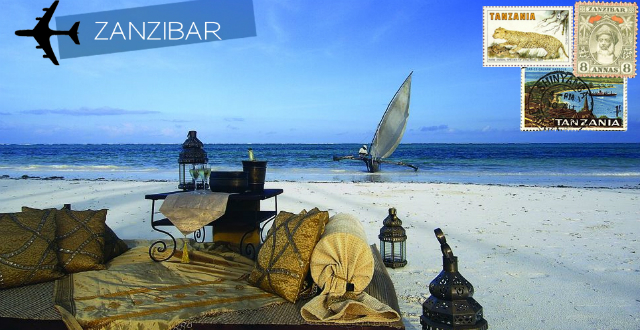
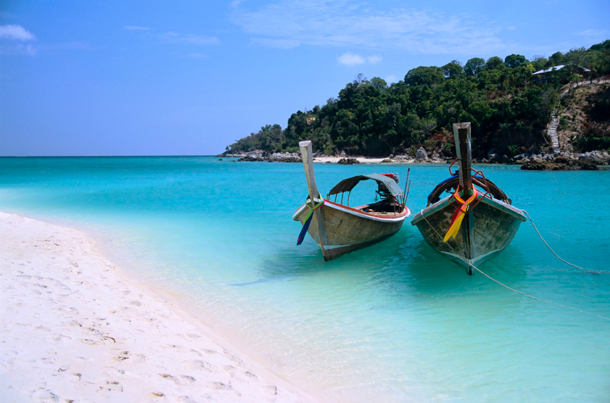
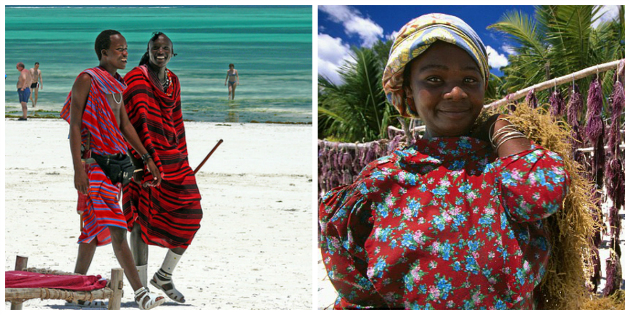
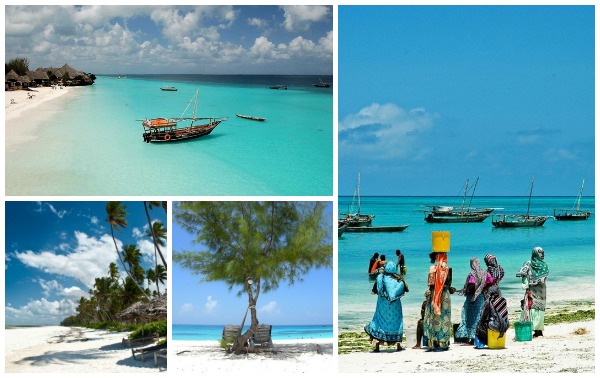
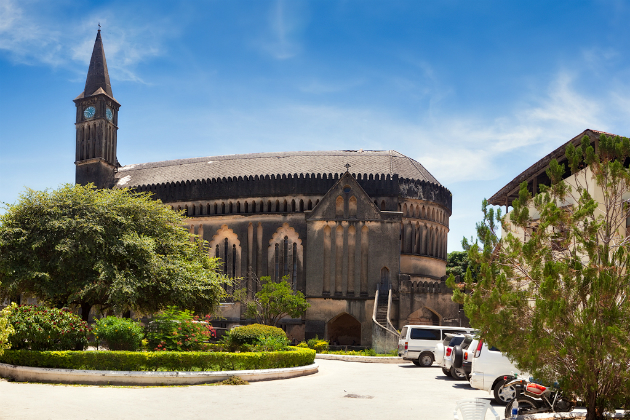
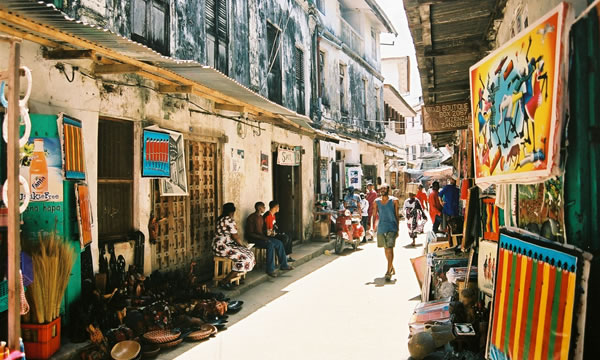

Comments